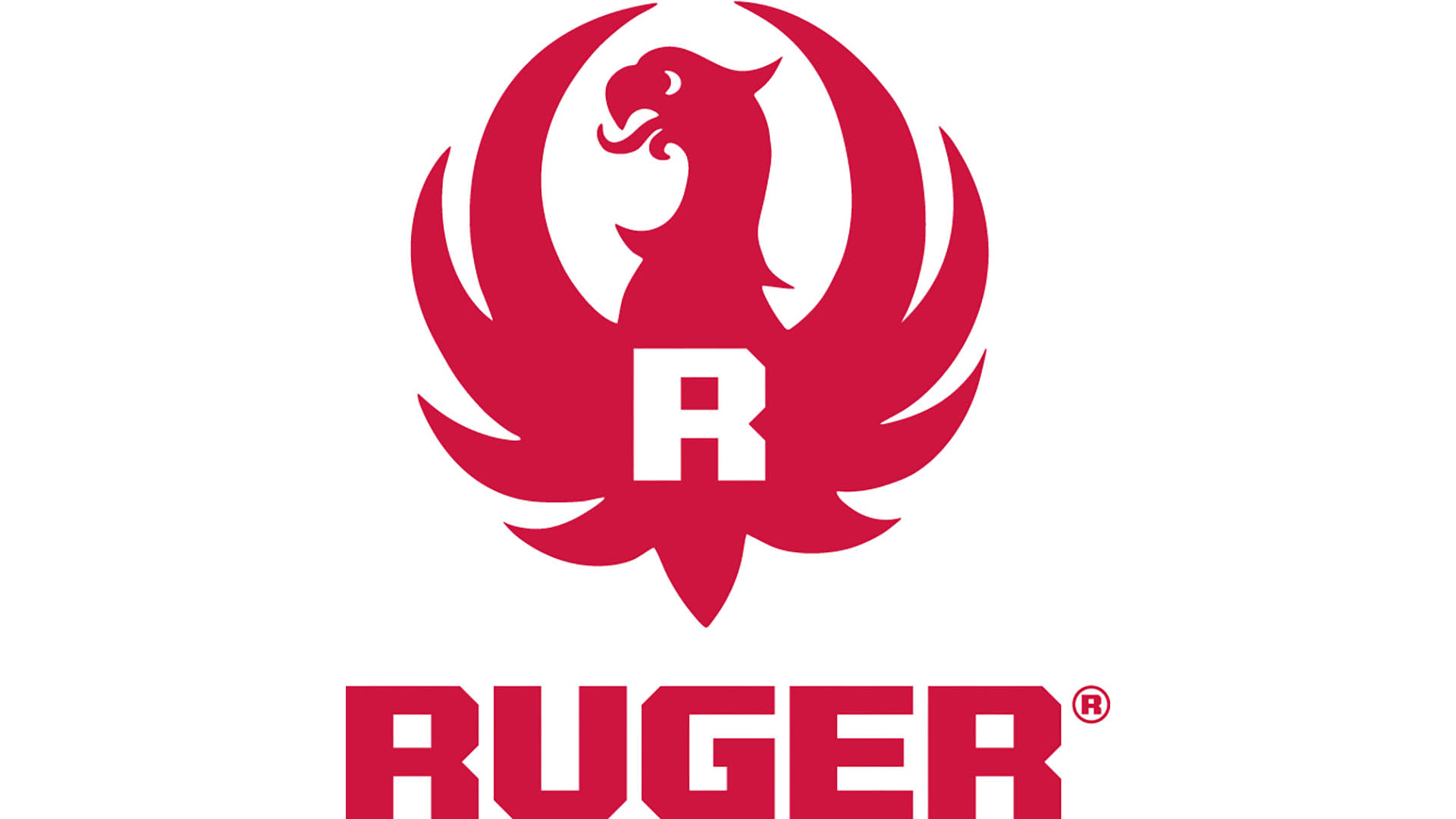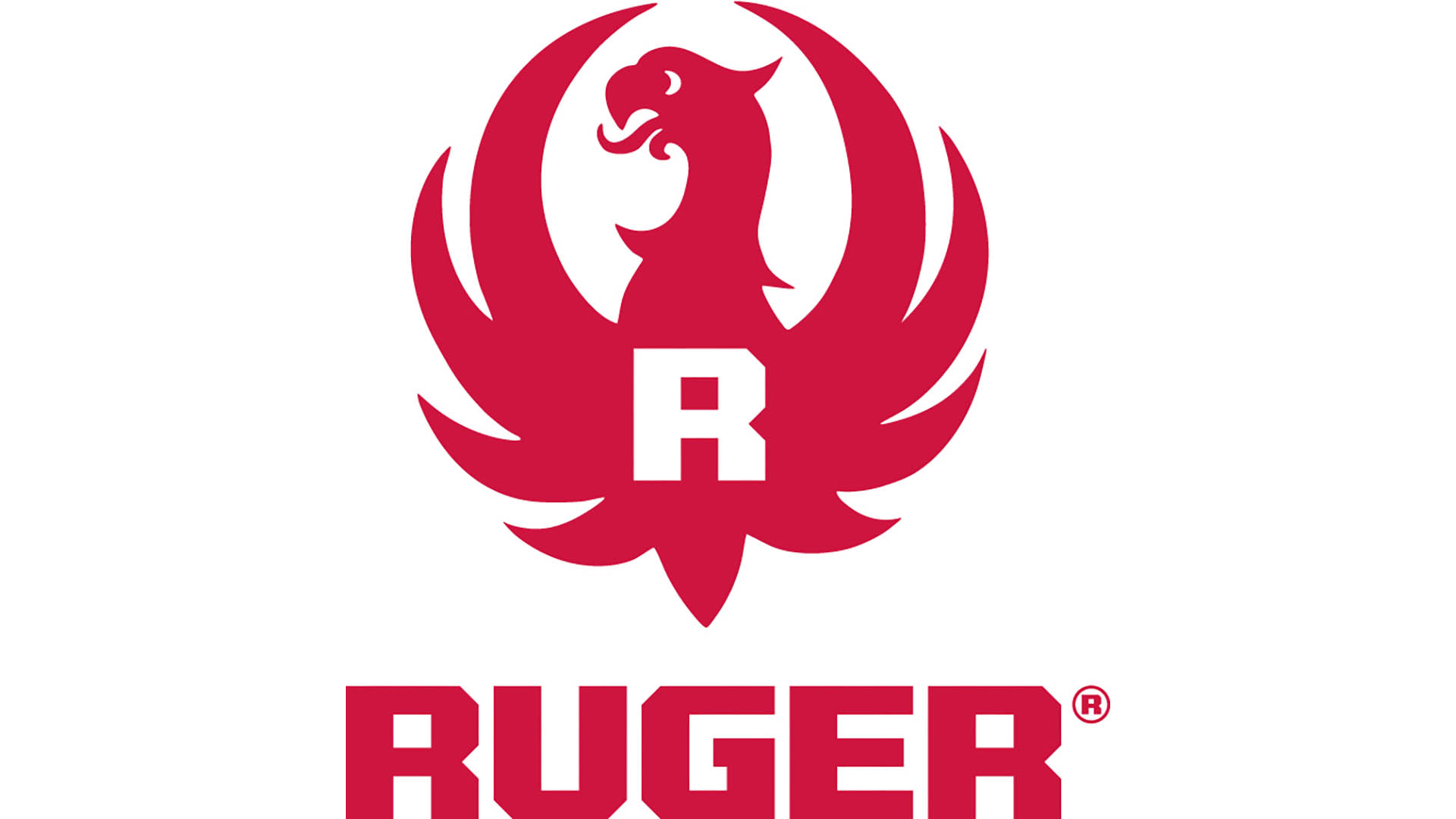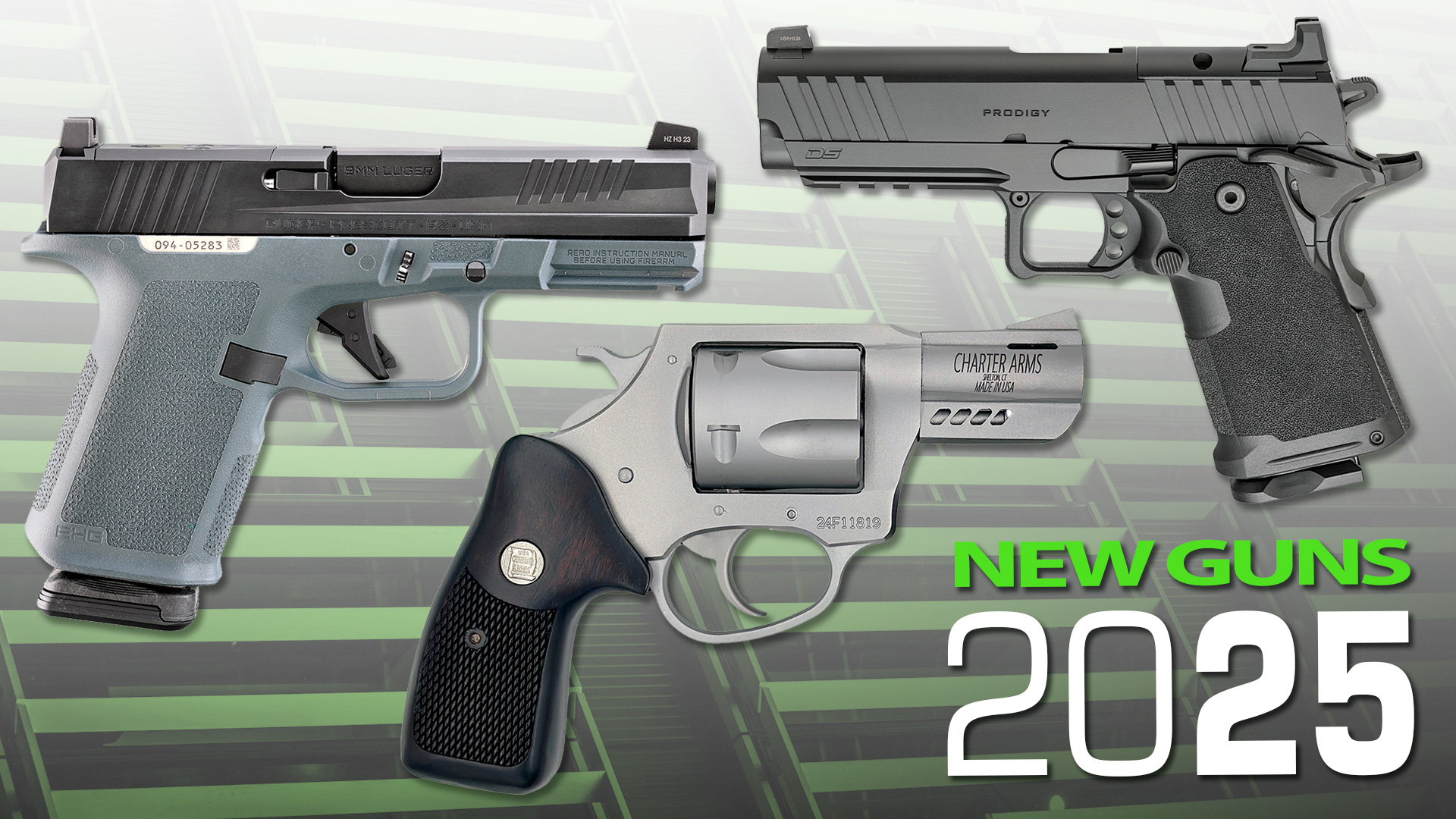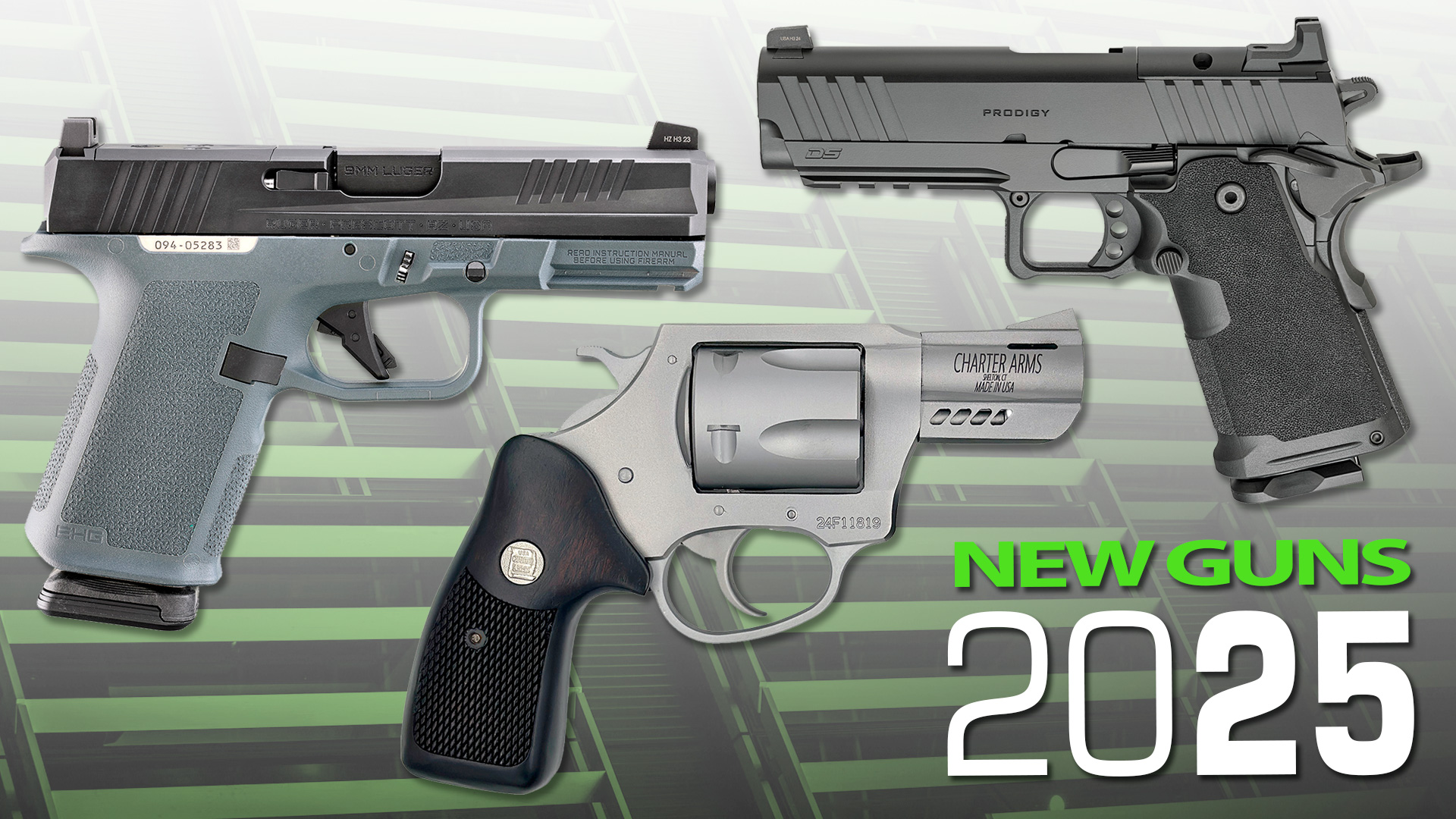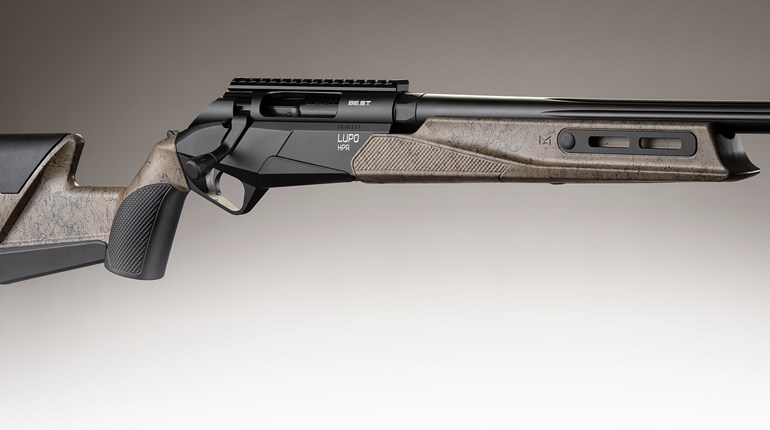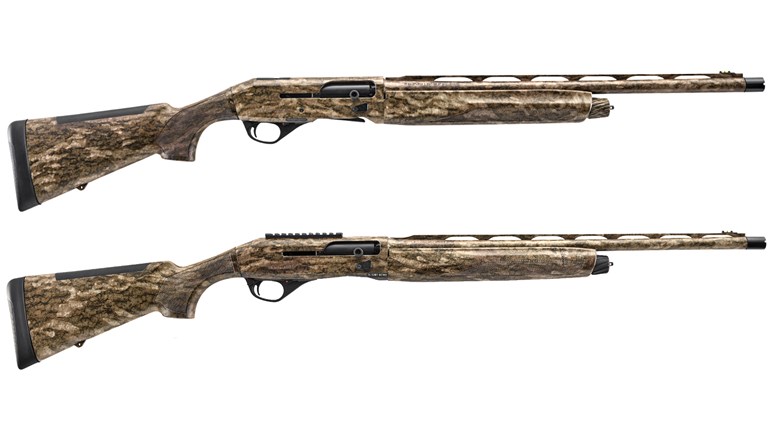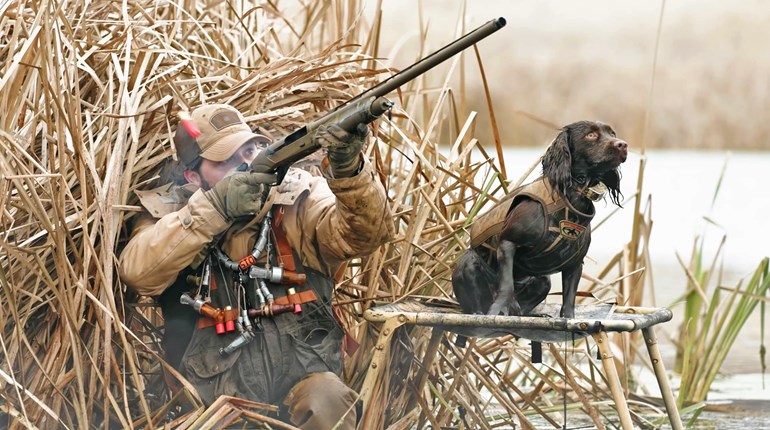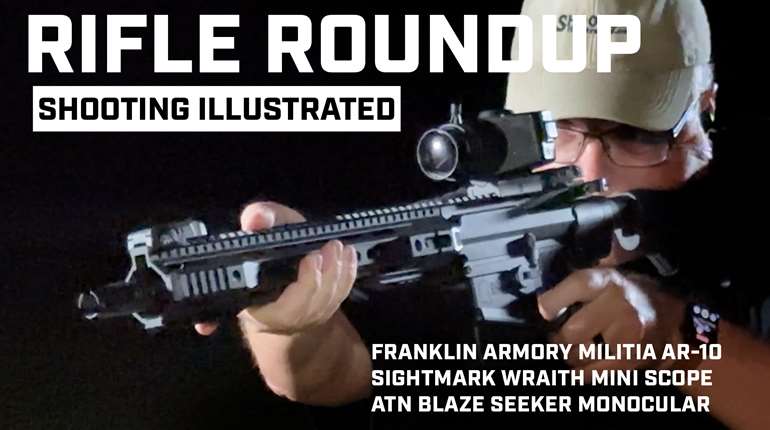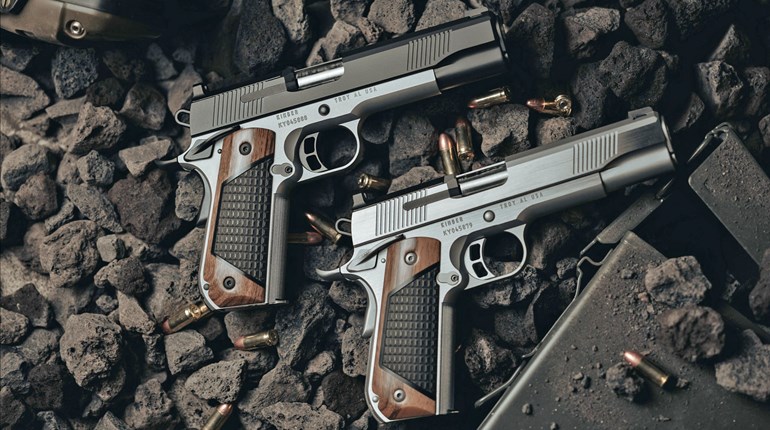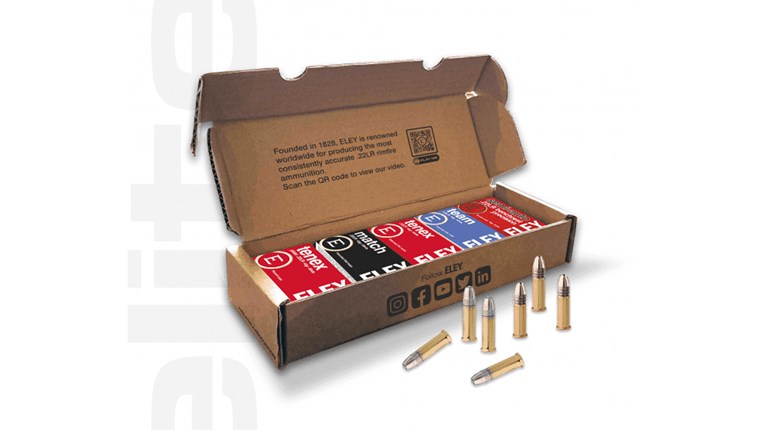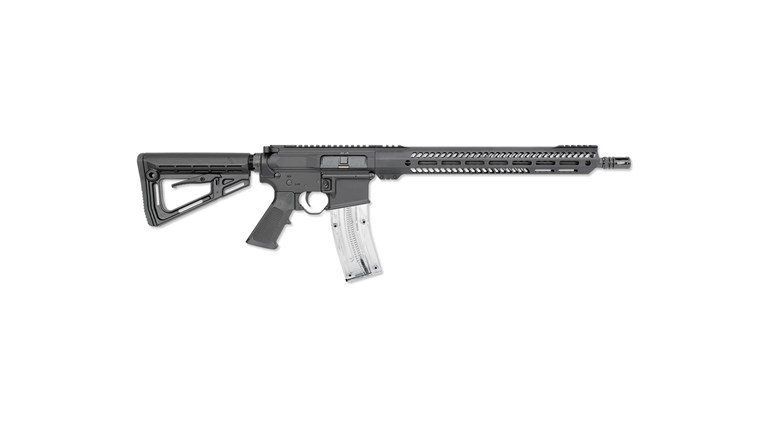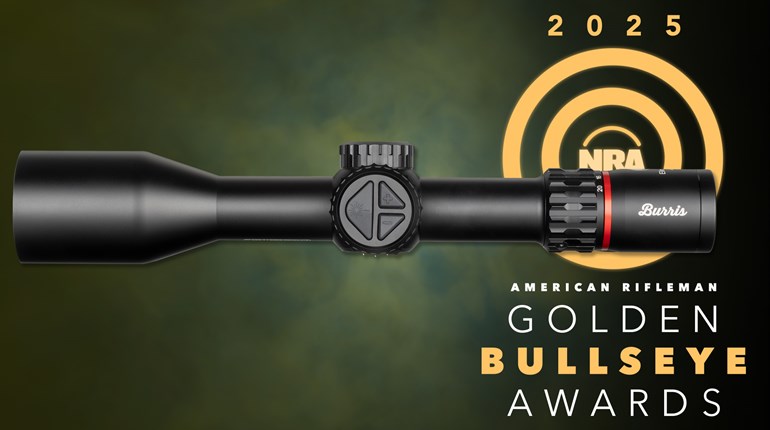
When it comes to choosing an all-around shotgun—one that will serve nicely for any task, in any condition, anywhere—my vote goes to the ubiquitous pump. Sure, over-unders may point a little more nicely, but their capacity is limited. Side-by-sides may have more style, but an optic doesn't mount very well across two barrels. Semi-autos may offer faster follow-up shots, but their complicated actions are sometimes finicky about ammo and can stop working. I'll happily grab a pump gun and rely on it for everything from grouse and gobblers to guarding my home against bad guys.
Benelli gives a stellar example of just how versatile a pump-action shotgun can be with its SuperNova. This 12-gauge shell shucker comes from the factory in 21 variations with four barrel lengths, two synthetic stock configurations and five finishes. You can have a SuperNova with a smoothbore barrel that accepts screw-in choke tubes, a fixed-cylinder barrel for tactical applications or a fully rifled barrel for slugs, each with one of three sight arrangements that best suits the intended role. Choose Benelli's ComforTech buttstock to soak up recoil from magnum goose loads, or go with the company's SteadyGrip design for stability when aiming.
Thanks to the SuperNova's modular design, not only barrels but also buttstocks are interchangeable, and a host of add-on accessories present even more options. Law enforcement personnel may go for the collapsible, pistol-grip buttstock to cut down on size within the confines of a patrol vehicle. Hunters could opt for the 24-inch rifled barrel with a cantilever mount to switch from ducks to deer, adding an extra-high comb insert to the ComforTech buttstock for better eye alignment with the scope. Considering every barrel but the rifled versions are chambered for 3 1/2-inch magnum shells, the possibilities with this pump gun are nearly limitless.
Although Benelli's inertia-operated semi-autos usually take the spotlight, the high-tech engineering that went into the SuperNova deserves attention. The gun's futuristically styled receiver is a steel frame encased in glass-reinforced polymer. Molded with a rounded contour that slightly swells near the back of the receiver, the polymer shell resists the corrosion, dents and scratches that have a habit of leaving their mark on hardworking pump guns. At the same time, the steel frame provides strength, along with a platform that can be drilled and tapped.
Since the SuperNova's bolt features a rotary, two-lug bolt head that locks up by engaging recesses in the barrel extension, the receiver remains relatively unstressed when the gun is fired. This goes hand in hand with the overmolded polymer receiver design, and it allows the steel frame to be skeletonized to reduce weight. The bolt rides smoothly on dual action bars that prevent the forearm from excessively wobbling or binding. Its positive back-and-forth cycle, especially when chambering magnum shells, plays no small part in hitting targets with quick, second and third shots.
The SuperNova's sharply angled trigger guard is part of a one-piece, steel-reinforced polymer housing that contains the trigger group and shell carrier. Recesses in the housing's frame accommodate the action release lever and cross-bolt safety button, which—unlike on many pump guns and semi-autos these days—is sensibly located in front of the trigger. I carry a pump gun like the SuperNova with the index finger of my shooting hand stretched along the receiver just above the trigger guard, where a singular downward motion will depress the safety button and put me in contact with the trigger almost all at once. When the safety is located at the rear of the trigger guard, I have to move my finger backward to the button and forward again to the trigger, which is downright unnatural and inefficient, or keep a constant crook in my finger so it's just above the button, which is uncomfortable. Safeties of all types are a common gripe among shotgunners for various reasons, and it is refreshing to see Benelli put one on the SuperNova that functions intuitively—at least for me.
Driving out the two pushpins that hold the housing in place frees it for cleaning. It's a task that could easily be performed even in the bottom of a pit blind, with no extra tools, for the SuperNova's magazine cap is smartly designed to aid in disassembly. Protruding from the front of the cap is a peg about 1/8-inch long that will move the pins through the receiver just enough to expose their flattened heads. A rim on the inside of the cap just ahead of the threads grabs the edges of the pinheads for complete removal. Then it's simply a matter of pulling down on the housing to separate it from the receiver. Pretty neat, and certainly helpful if mud would happen to jam the carrier and render the action inoperable.
The SuperNova borrows its receiver and action design from its Nova predecessor, but it adds versatility with three modular, synthetic buttstocks. Benelli marks the specialized collapsible buttstock "for law enforcement only" on its website, but the ComforTech and SteadyGrip versions cover a wide range of hunting, tactical and—dare I say it of a pump gun—competitive shooting applications. The pump has a definite place in three-gun matches, and if you plan on hunting birds with one, you might as well shoot clays with it, too.
Popping off the recoil pad reveals a throughbolt that, when loosened with a socket wrench, allows the buttstock to be removed from the SuperNova's receiver. Switching buttstocks takes but a few minutes to accomplish. Both the ComforTech and SteadyGrip versions are offered in matte black and camo finishes to match those that cover the gun's receiver, barrel and forearm.
The advantages of the ComforTech buttstock, besides the much heralded recoil reduction, are an adjustable length of pull and comb height. By swapping three gel recoil pads of varying thickness, you can change the length of pull to 13 1/2, 14 or 14 3/8 inches. Most shotguns designed for wingshooting have buttstocks with a drop that is too low for positioning the eye in line with an optic mounted on the receiver while maintaining a good cheek weld. Benelli addresses this issue by offering inserts that raise the comb of the ComforTech buttstock and make it easier to aim with an optic.
When maneuverability and muzzle control are paramount, like during a long-winded conversation with a boss gobbler or in a tactical situation, the SteadyGrip buttstock with its extended pistol grip gets the nod. The vertical grip allows your hand to better support the gun, especially in the tactical, low ready position, and its soft rubber composition cushions against recoil. A firm hold on the pistol grip also helps to minimize the gun's movement when working the action and keeps the buttstock against your shoulder during the forward stroke. Polymer loops on both sides of the SteadyGrip buttstock provide a means for attaching a sling.
Like the rest of the gun, the SuperNova's forearm is modernly styled with function in mind. Instead of checkering, a series of ridges molded into the polymer provide an aggressive texture. The ridges are quite coarse, especially along the edges of the finger groove, and they do almost too good a job of preventing the hand from slipping. On the underside of the forearm near its middle is a button that serves as a magazine cutoff. Pressing the button activates a shell stop, so you can bring the slide to the rear and clear the chamber without releasing a round from the magazine. The feature allows quick tactical reloads—switching one round of buckshot for a slug or vice versa—and it also provides a way to make the gun safe when crossing an obstacle while hunting without ejecting all the shells in the magazine.
Reclining in a layout blind on the Canadian prairie last fall, enjoying the flights of geese and ducks that were on some mornings thousands strong, I had plenty of opportunity to test the features of the SuperNova. The version I shot in Saskatchewan was equipped with a 28-inch barrel and a ComforTech stock cloaked in Advantage MAX-4 HD camo. Though it was a bit hefty at 8 pounds, the SuperNova came to my shoulder quickly when I sprang into a sitting position and pointed nicely at the surprised honkers and mallards. It was also nimble enough to chase down a few late-migrating teal as they came careening into a little pothole the last afternoon of the hunt. In two days of hunting I ran the better part of three boxes of Federal Black Cloud magnum loads through the SuperNova, and it functioned without a hitch, despite being covered in oat chaff and speckled with prairie mud. Close to half of those rounds were 3 1/2-inch loads, and though I wouldn't want to shoot them all day out of the SuperNova like one of my colleagues on the hunt, I could still toast the good shooting without my shoulder feeling like it was about to dislocate.
To see another side of the SuperNova, I spent a few days on the range evaluating the Tactical model with the SteadyGrip buttstock. The newest version in the lineup, the SuperNova Tactical with Desert camo finish is made to handle serious business in the sand and the homeland. With an 18-inch, smoothbore barrel and a fixed-cylinder choke, the pump comes ready for buckshot and slugs. While the 3 1/2-inch chamber is a bit much for a tactical shotgun, it does present interesting options. Plus, you needn't worry if the 12-gauge shell you just picked up in the dark will fit in the gun. The magazine holds four, 2 3/4- or 3-inch shells and one less 3 1/2-inch magnum.
Adding an optic to the SuperNova Tactical would be easy since the receiver is tapped and drilled for a mount, but the ghost-ring rear sight and front post included on the gun are well suited for tactical work. I was particularly impressed with the rear aperture, which is fully click-adjustable with a penny, dime or quarter—oddly, a nickel is too thick for the slots. Witness marks for both windage and elevation confirm zero at a glance. On either side of the aperture's frame are white dots for low-light use. The aperture faithfully responded to adjustments, and its steel construction should hold up to abuse. One drawback to the rear sight is the housing and wings that are designed to protect the aperture are made of polymer, which may crack if knocked against something hard. Steel wings protect the post-style front sight mounted atop a steel frame. It, too, contains a white dot. The post is adjustable for windage by loosening the nut and lock washer that holds it and the wings to the frame and moving the assembly to the left or right.
I patterned three 00 buckshot loads from Remington and Winchester with the SuperNova Tactical, and all gave excellent performance. After five shots at 15 yards, Remington's 2 3/4-inch Express Buckshot load had an average of seven of its nine 00 pellets in an 8-inch circle.
The Winchester 2 3/4-inch Supreme Double X Magnum load with 12 copper-plated pellets of 00 buckshot put an average of nine of them in the circle at the same range. However, the best performance of the day came with Winchester's 3-inch Supreme Double X Magnum load. This little rocket contains 15 pellets of 00 buckshot. Twice from 15 yards it delivered 13 of the copper-plated, .33-caliber pellets inside or touching the target. Once it put 12 pellets in the target, and the other two shots hit the circle with 11 pellets. That's an average of 12 delivered to the target, which is an absolutely devastating blow.
The SuperNova Tactical kept it going with slugs. At 50 yards, the Remington 2 3/4-inch, 1-ounce Slugger load produced a five-shot group of 3 1/2 inches. Winchester's 2 3/4-inch, 1-ounce Super-X Power-Point slug performed about the same. The winner of the slug-out, though, was the Federal Premium 2 3/4-inch, 1 ounce Hydra-Shok load. Five of these hunks of lead grouped within 2 1/2 inches of one another, and three of them pretty much just tore one big hole through the target. Ouch.
The versatility and performance of the Benelli SuperNova is just one more reason to love the pump gun. In my book it lives up to its name; it's a superstar not only among pumps, but among shotguns altogether.


